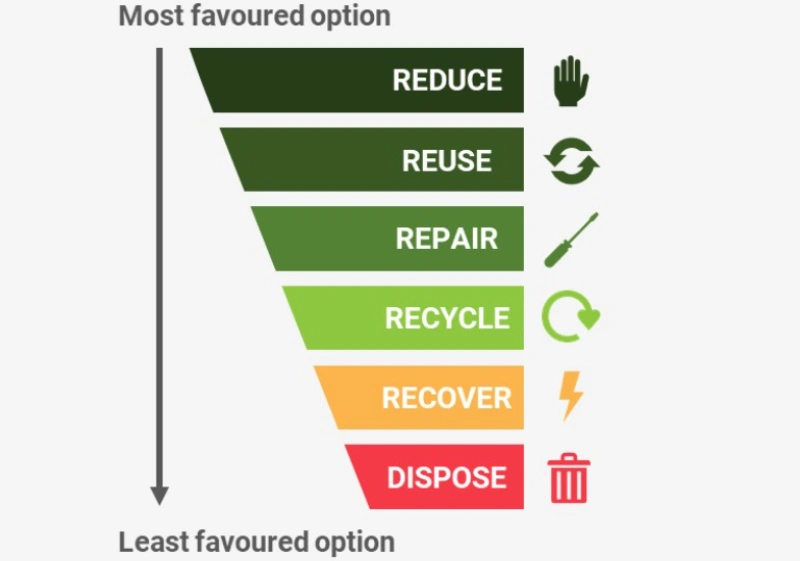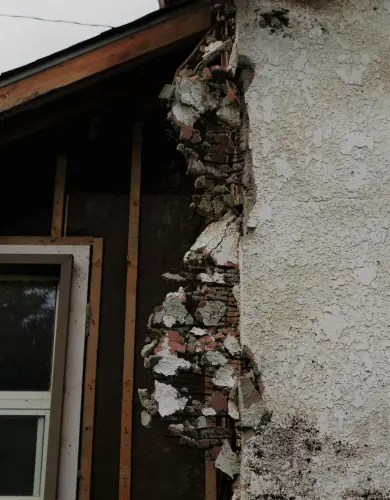Commercial Waste Regulations and Compliance
This guide summarises the obligations of individuals, businesses, charities, and other organisations that handle commercial waste.
💡 Commercial waste refers to refuse produced by any trade or business. For a precise definition of how this differs from domestic waste, refer to our guide on what is classified as commercial waste.
Contents:
- Compliance Checklist: Use our commercial waste compliance checklist to ensure your business complies with UK regulations.
- Duty of Care: All businesses in the UK have a legal duty of care over their waste management, and we explain everything this entails.
- Waste Transfer & Consignment Notes: These are legal proof that your business complies with its duty of care. You must keep a copy of them for regulators.
Is my business compliant with UK waste regulations?
Source: Right Place, Right Waste
💡 Waste regulation and compliance in the UK is extremely confusing because of Brexit and the UK’s devolved policies, so we have broken down this topic into two separate guides:
- UK-wide Regulation and Compliance (this one)
- Devolved Policy and Regulations (Waste rules and legislation specifically for England, Wales, Scotland and NI)
Duty of Care
In the UK, all businesses and organisations have a legal duty of care over the waste they generate.
This legal responsibility was introduced in the groundbreaking Environmental Protection Act (EPA) 1990 and was recently amended by the Environment Act (EA) 2021 to provide more clarity in definitions and expanded responsibilities.
💡 These central government legal changes essentially drive and direct the regulations and policies of each devolved nation.
Environmental Protection Act 1990
Duty of Care: “Any commercial activity”, whether run from home or its premises, is legally responsible for its waste and will pay fines or be convicted for jail if found non-compliant.
Commercial & Household Waste: Waste generated by non-domestic activities cannot be mingled with the domestic waste stream (i.e. business and household waste must be kept separate).
Licenses: Your business is liable for its waste from when it is produced until it is recovered or disposed of. You must ensure that your waste disposal and collection provider has the relevant operating licenses.
💡 Note: Our commercial waste quotes are from vetted, fully licensed business waste collection providers, so there’s no need to worry!
Paperwork: All businesses must sign and keep a copy of Waste Transfer Notes and Consignment Notes to declare compliance. More details here.
Fines: In England and Wales, unlimited fines are available for non-compliance, while in Scotland and Northern Ireland, the statuary maximum is £5,000.
Sources: UK Environmental Protection Act (1990) pdf; Right Place, Right Waste
Environment Act 2021
Segregation of Recyclables and Food Waste: Recyclable and food waste must remain as segregated waste streams.
Recycling Standardisation: Recycling practices, materials and labelling on packaging must be standardised.
Extended Producer Responsibility (EPR): Product manufacturers and producers will be responsible for the end-of-life management of their products (not yet fully implemented).
Electronic Waste Tracking: Introduces a universal electronic waste tracking system to enhance enforcement against electronic waste crime (not yet fully implemented).
Charging Schemes: Empowers regulators by allowing charging schemes to recover the costs of enforcing Duty of Care breaches in non-compliant businesses (i.e. higher fines for businesses).
💡 While these up-and-coming clarifications and expansions were technically already implemented by the waste hierarchy, the clarified Act reduced any ambiguity, forcing devolved nations to update their regulations and policies.
Sources: UK Environment Act 2021; Sharpe Pritchard
The Waste Hierarchy
The waste hierarchy is the universal guiding principle for waste management, detailing how businesses should prioritise waste management. It was “imported” into UK law through the EU Waste Framework Directive in 2008 and implemented in devolved regulations and policies in 2011. This includes England, NI, Wales, and Scotland.
Our waste hierarchy guide provides more details about the history, significance and types of hierarchies.
Here’s a generic waste hierarchy that ranks waste management strategies by their favourability:

The waste hierarchy is a relatively loose concept that applies generally across all types of businesses. In our sectors guides, our business waste experts have provided practical examples of how the waste hierarchy guides the waste management plans of typical companies.
💡 56% of UK companies are not fully compliant with regulations, of which 94% are small businesses, and a quarter put all their waste in a single bin (i.e. completely ignoring the waste hierarchy).
Source: UK Gov – Guidance on applying the waste hierarchy; Right Place, Right Waste
Waste Transfer and Consignment Notes
These documents serve as the legal declaration that your business and the waste recipient are acting in compliance with their respective duty of care, according to both devolved and UK-wide regulations.
The licence held by the recipient of your waste depends on how your business manages its waste:
- A commercial waste collection provider will hold a waste carrier licence.
- A commercial recycling centre or waste transfer station will hold an environmental permit for the disposal site.
Waste Transfer Notes apply to non-hazardous waste, while Consignment Notes are used for hazardous waste.
Waste Transfer Note
Both the business and the waste collection/disposal provider must complete and sign the note (or a similar document, like an invoice), retaining a copy for two years. They must also be able to present it to enforcement officers upon request.
💡 Season Tickets: A ‘season ticket’ or an annual waste transfer note can be used for multiple transfers of non-hazardous waste over a year. This requires maintaining a separate schedule listing each waste transfer’s details.
For more information, refer to our complete guide to the waste transfer note.
Consignment Note
See our detailed guide on how to fill out a Consignment Note that includes templates from each relevant regulator.
Source: UK GOV guidance – Waste transfer notes
Regulation and Compliance – FAQs
Our business waste experts answer the commonly asked questions on commercial waste compliance and regulations.
What are devolved waste regulations in the UK?
💡 See our comprehensive guide on Devolved Waste Regulations to see how these apply to your business.
The UK is a union comprising four ‘home nations’: England, Scotland, Wales, and Northern Ireland.
In recent years, the UK central government has been ‘devolving’ (i.e. giving back) certain powers to these nations, including authority over waste regulation.
This ‘devolution’ allows each nation to create and implement its own waste management policies, tailored to its unique needs.
These ‘devolved waste regulations’ are built on top of UK-wide legislation (i.e. EPA 1990, Environment Act 2021) to ensure a degree of standardisation across the home nations.
Source: UK Gov – Devolution: Factsheet

